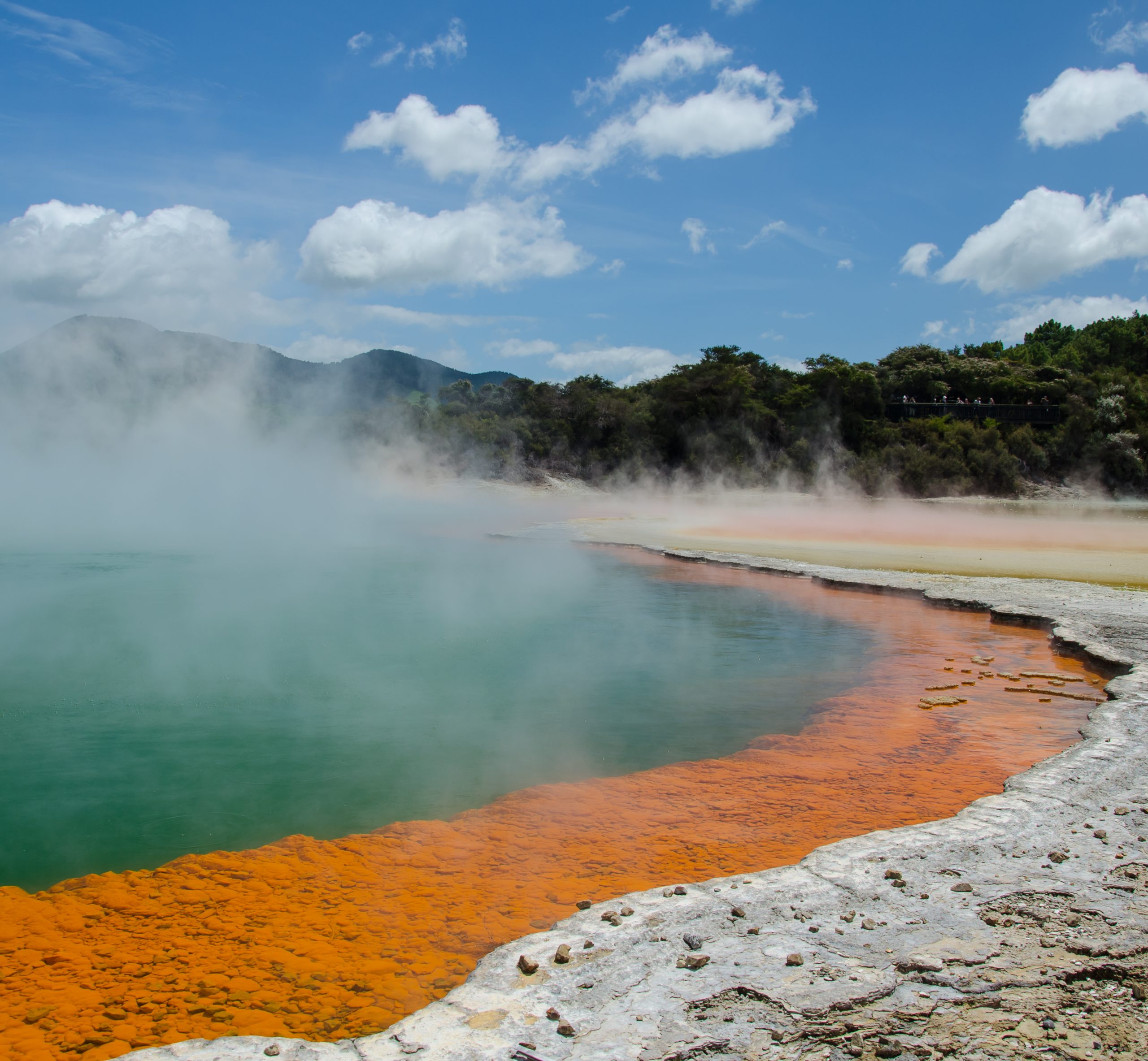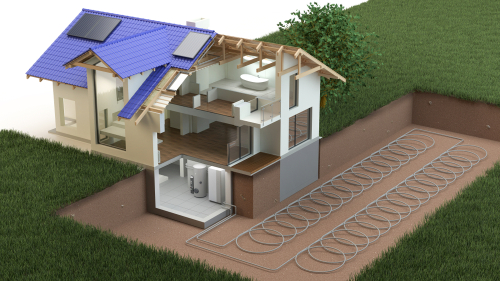Harnessing geothermal energy is an excellent alternative to electricity for your household, and in this article, you will learn about geothermal home heating pros and cons. Geothermal heat pumps, or more commonly known as ground-source heat pumps, offer heating and cooling by conducting heat from the ground into your home.
Geothermal energy is great renewable energy for a home that you can use as a heat source in various appliances. Geothermal heat conduction is possible due to the Earth’s constant underground temperature. However, installing geothermal pumps to your home is not a minor feat that you can do on a whim – there are several factors to consider, which we will list in this article.
Before installing geothermal home heating, there are several geographic and environmental factors that you should consider. The first factor is the space required to install geothermal home heating – you need to consult professional installers to determine the exact space requirements. The second factor is the soil type in your property. Soft soil will allow a quick and easy installation process, whereas denser clay-based soil and rock formation will pose a more significant challenge. There should also be enough clearance on your property to allow heavy machinery to operate (to dig the ground).
While the idea of using the ground to generate and dissipate heat from your home is attractive, there are both financial and geographical challenges. Let us discuss the geothermal home heating pros and cons deeper.
You might also be interested in;
– Pros and cons of biomass energy
– Pros and cons of solar energy
– 7 ways of conserving energy at home

Geothermal Home Heating – Pros
There are several benefits to having geothermal heating for your home; let us discuss these benefits.
Massive Reduction in Cooling and Heating Costs
Cost reduction is one of the most significant drawing factors of geothermal heating for homes. Not only do they deliver better efficiency than a fuel-burning system like a furnace or electricity-drawing space heaters, but geothermal heating also offers more stable heating.
The constant ground temperature allows the heat output from geothermal heating to be consistent throughout the year. It is virtually unaffected by anything – so you can expect a steady efficiency.
Environment-Friendly Heating and Cooling Solution
Even though geothermal energy harnesses energy from nature (ground) itself, it does not extract fossil fuels or other energy materials with questionable methods. Geothermal heating simply transfers the heat from the ground to your home – as simple as that. There is no mining, processing, or shipping involved – it has virtually zero carbon footprint.
The only power required to run geothermal heating is the electricity to run the pump itself, which you can easily subsidize by installing solar panels to generate the power.
It Provides a Reliable Heating Solution
Compared to the limited resources like fossil fuels and natural gas, geothermal heating draws the heat generated by Earth’s core that will always be there to extract. With geothermal heating, there is no risk of exhausting the resource used to heat your home.
The heat is also relatively consistent throughout the year, so that you can expect a stable heating performance for your home. Since it does not require the export/import process, mining, and other business plans, your home heating will not be affected by any governmental policies and regulations in any meaningful way.
Long Lifespan and Minimal Maintenance
Compared to the conventional furnace, which requires a replacement every 15 to 20 years, well-designed geothermal home heating can last over 50 years with much lower maintenance.
A furnace or a boiler requires regular maintenance at least every six months or every year to eliminate the risks of oil leaks, which could be catastrophic. These maintenance and repairs could get expensive rather quickly.
The only part that would likely require a replacement is the heat pump itself, with a price tag of $1,500 to $2,500 per ton with a geothermal home heating system. The longer lifespan and lower maintenance put geothermal home heating as a much better option than a furnace.

Geothermal Home Heating – Cons
Expensive Installation Cost
Geothermal energy for a home often draws people’s attention, but its high upfront installation costs often turn those people away. For an average-size house, the upfront installation costs could add up to anywhere between $10,000 to $20,000.
One way to optimize the installation cost is by improving your home’s energy efficiency by upgrading wall and attic insulations. With optimal insulation, you can get away by installing a smaller and cheaper geothermal home heating system.
While the upfront cost is considerable, installing geothermal heating could lower your electricity bills forever – which could surpass the initial investment cost.
Geographically Dependent
Another factor that eliminates the possibility of installing geothermal heating is the environment in which your property is located. Not all locations are suitable to install geothermal heating. Some areas have a higher ground temperature, while others might have a colder ground temperature.
Since you can’t alter your property’s ground heat, there is no workaround for this issue. If the ground temperature is not suitable for geothermal heating, then you are simply short of luck.
Unlike other alternative energy sources like solar panels that are modular, geothermal heating is absurdly rigid and requires skilled hands to design and install.
There is also a unique factor to each ground, which means every piece of geothermal heating system will have to be designed or modified for your property.
Geothermal Heating Pumps Are Not Always Carbon-Neutral
The pump required by a geothermal heating system is technically a renewable HVAC system – but it is not entirely carbon-neutral.
As much as an eco-friendly solution, geothermal heating still requires electricity to run, albeit a space heater and air conditioner. Depending on how your local electric company produces its energy, you might always be dependent on fossil fuels.
Suppose you are trying to avoid using fossil fuel or living an eco-friendly life to its absolute core. In that case, you should find out how your local power grid produces its energy before installing a geothermal heating system.
Conclusion
When it comes to eco-friendly heating solutions, a geothermal heating system wins the competition. Geothermal home heating is a great option to reduce electricity bills as well as reduce your household’s carbon footprint. With that said, you should consider geothermal home heating pros and cons carefully before installing one.


